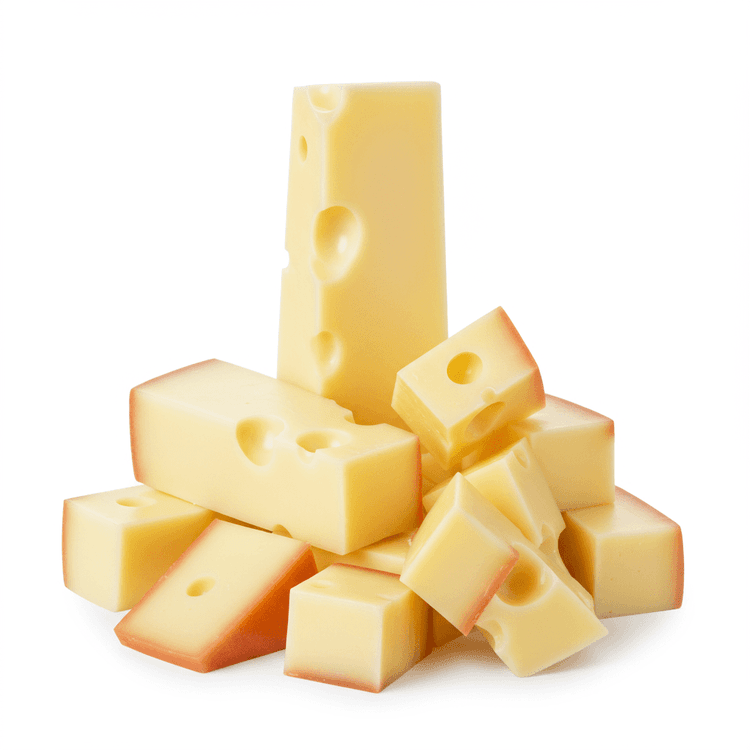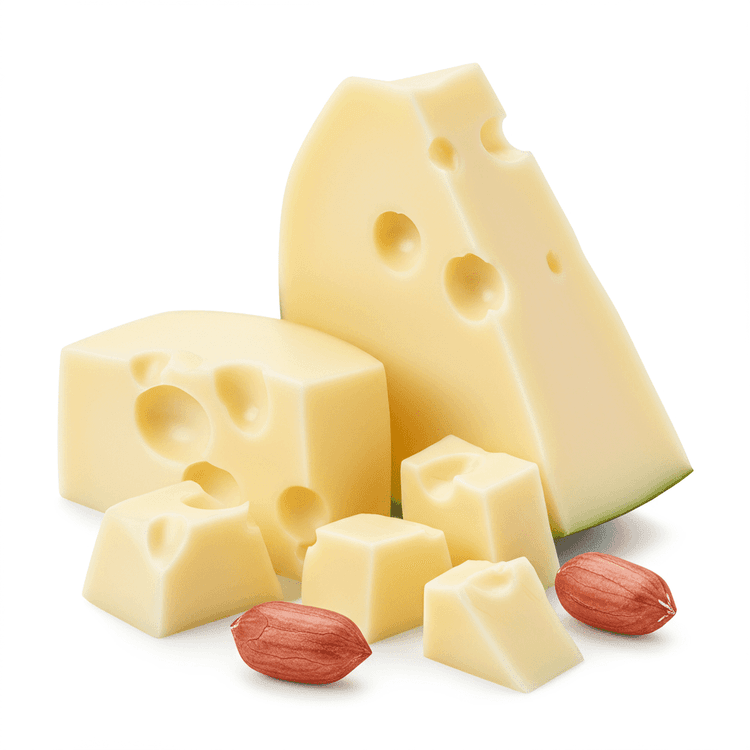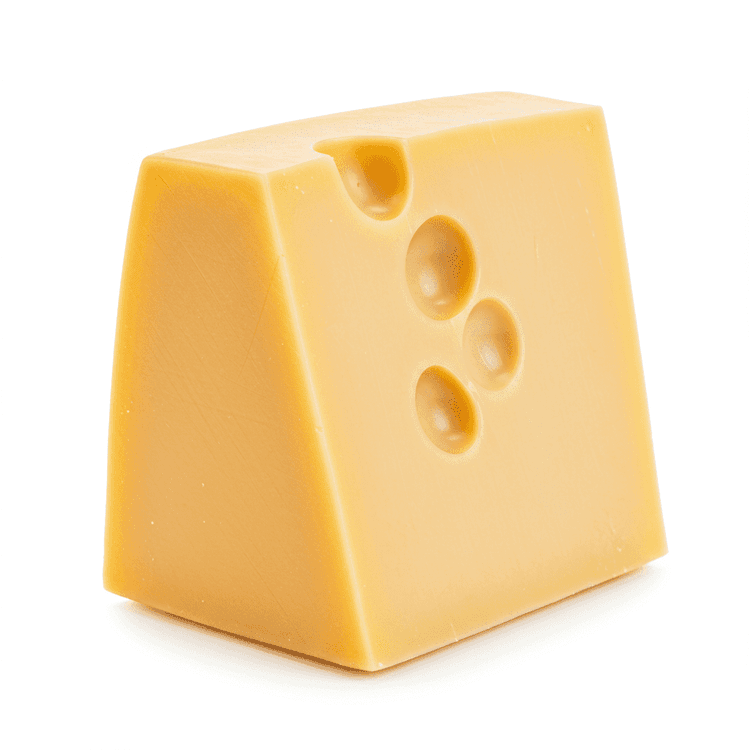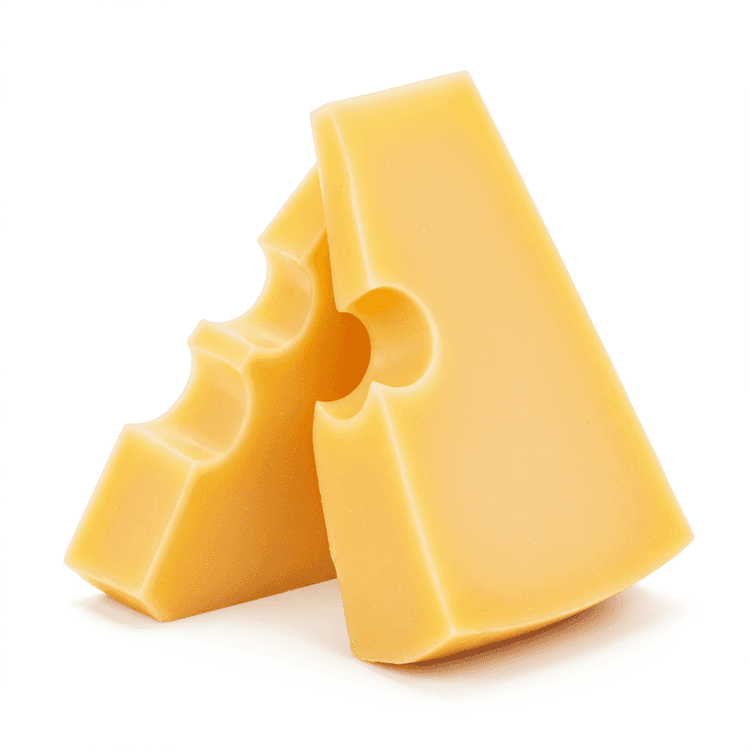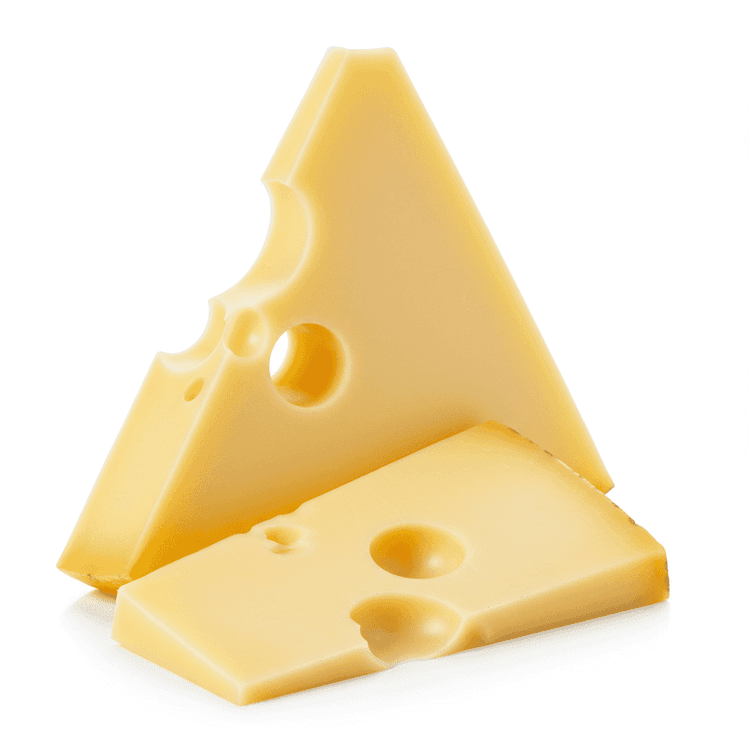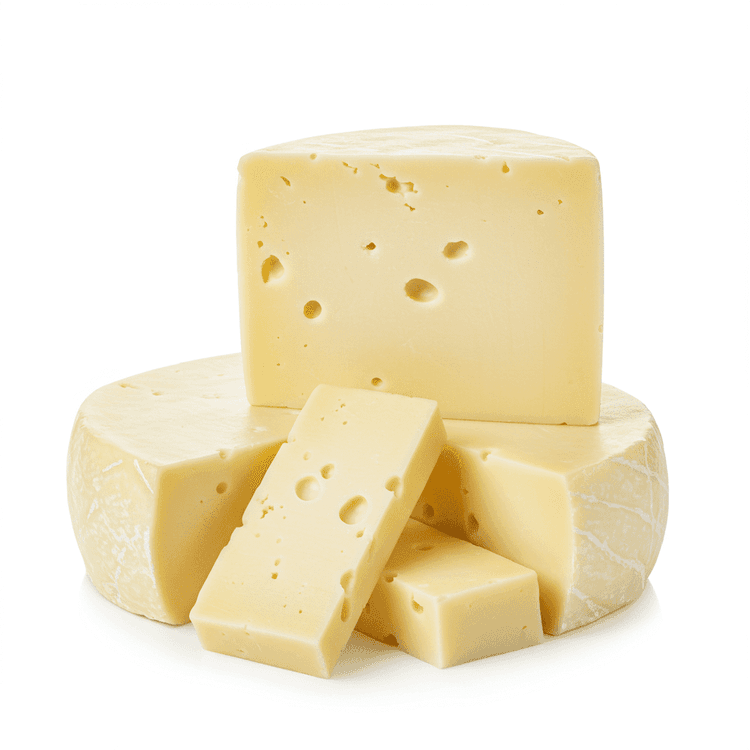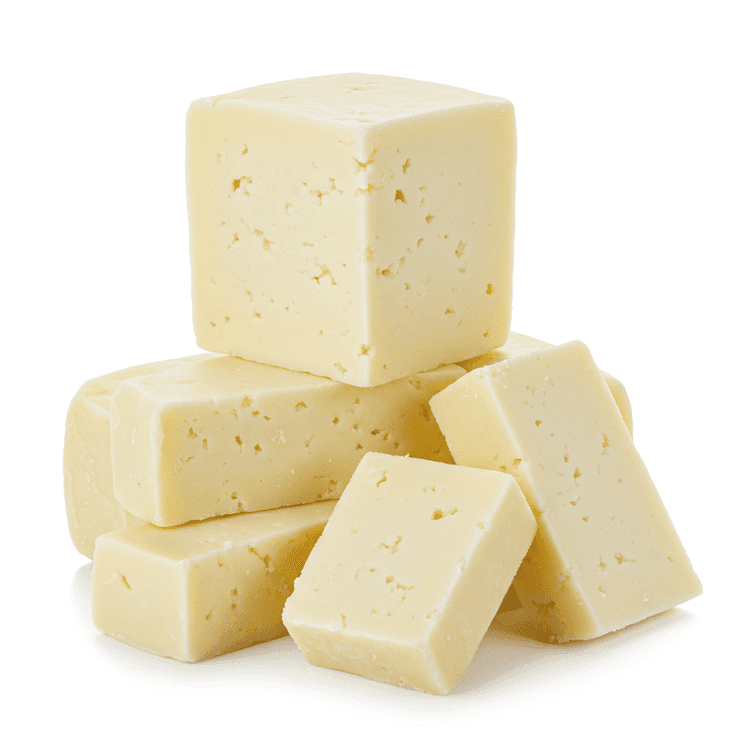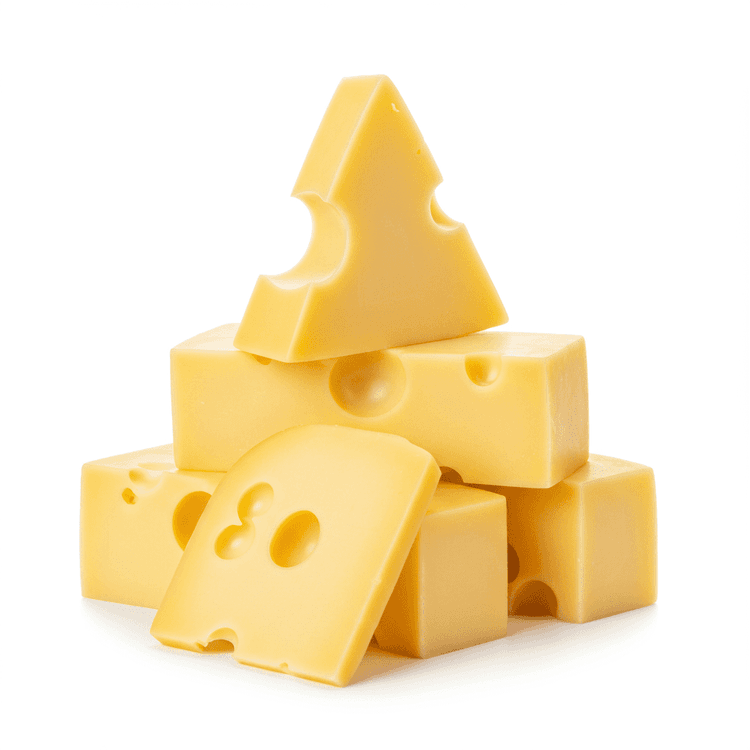
Swiss Cheese
Swiss cheese is a semi-hard cheese with a distinctive mild, nutty and slightly sweet flavor. It is known for its characteristic large holes, also known as 'eyes', that develop during the fermentation process. The texture is smooth and firm, and the color is typically pale yellow. When you're looking for a versatile cheese that melts beautifully and adds a subtle, creamy taste to your dishes, swiss cheese is an excellent choice. Consider using it to add a sophisticated flair. Its low sodium content also makes it a favorable option for those watching their salt intake.
Common Uses
- Melts wonderfully in grilled cheese sandwiches, offering a nutty and mild taste that complements other ingredients. - Great for making quiche and omelets, as it adds a creamy texture and subtle flavor without overpowering the other flavors.- Adds a classic touch to a charcuterie board, pairing well with fruits, nuts, and cured meats. - Can be shredded and sprinkled over gratins and casseroles, providing a golden-brown crust and a delicious, savory flavor. - Use it in fondue recipes, blending its smooth texture and nutty notes for a rich and satisfying dish. - Diced swiss cheese is a delightful addition to salads, offering a creamy and savory element that enhances the overall flavor.
Nutrition (per serving)
Nutrition (per serving)
Calories
403.1kcal (20.16%)
Protein
27.4g (54.8%)
Carbs
1.3g (0.47%)
Sugars
0.3g (0.6%)
Healthy Fat
9.2g
Unhealthy Fat
20.8g
% Daily Value based on a 2000 calorie diet
Nutrition (per serving)
Calories
403.1kcal (20.16%)
Protein
27.4g (54.8%)
Carbs
1.3g (0.47%)
Sugars
0.3g (0.6%)
Healthy Fat
9.2g
Unhealthy Fat
20.8g
% Daily Value based on a 2000 calorie diet
Health Benefits
- Excellent source of calcium for strong bones and teeth.
- Rich in protein, supporting muscle growth and repair.
- Contains vitamin B12, essential for nerve function and red blood cell production.
- Provides vitamin K2, contributing to bone health and cardiovascular function.
- A good source of phosphorus, vital for energy production and bone health.
Chefadora AI is here.
Experience smarter, stress-free cooking.
Storage Tips
Swiss cheese is best stored in the refrigerator to maintain its quality and prevent spoilage. Wrap it tightly in plastic wrap or beeswax wrap to prevent it from drying out and absorbing odors from other foods. Properly stored, Swiss cheese can last for several weeks in the refrigerator. For longer storage, you can freeze Swiss cheese, although this may slightly alter its texture; wrap tightly and use within 2-3 months for best quality. Allow it to thaw in the refrigerator before use.
Marnirni-apinthi Building, Lot Fourteen,
North Terrace, Adelaide, South Australia, 5000
Australia
